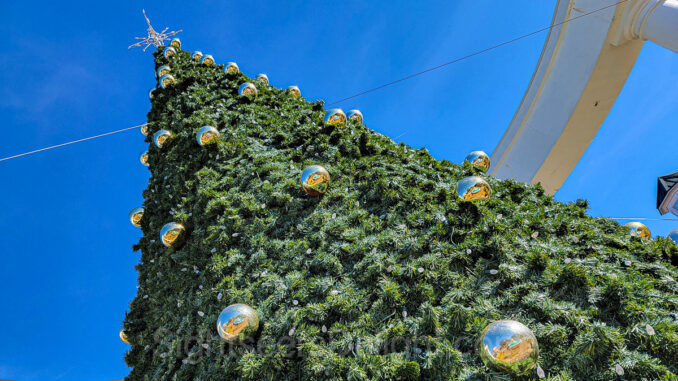
The Christmas and New Year’s period is certainly a time for celebrating. But for many struggling with addition, it can be a difficult time.
Here’s what Patrick Cronin, addiction specialist with Ark Behavioral Health, had to say.
What’s the key to enjoying a holiday/New Year’s celebration for people who are sober or who don’t drink?
The key to enjoying the holiday season or holding a New Year’s celebration for people who are sober or who don’t drink is coming up with sober solutions to celebrate.
There are many ways to hold sober celebrations. Some of these include:
- Holding a sober, themed party, such as a costume party, era-themed party, or a party where everyone comes dressed as their partner
- Replacing alcoholic beverages with mocktails — there are countless recipes for people who do not want to drink alcohol
- Celebrating with a night in of self-care
- Choosing a night at home and staying off social media, instead opting for more hands-on activities, like board games, charades, or other interactive activities with family or friends
- Warning family and friends ahead of time that you won’t be drinking, or that drinking will not be involved at your party if you are hosting one, and staying true to your resolve
What should someone do who makes a mistake or finds themselves in a situation they don’t want to be in because of drugs or alcohol?
Relapse, or returning to drug or alcohol use after a period of sobriety, is not only common, it’s often expected with recovery. With that being said, you should be honest about your relapse — to yourself, to your sober sponsor, if you have one, and to those closest to you who are involved in your recovery. Being honest allows you to move forward.
If you simply are at a party with drugs or alcohol, call a trusted, close friend or family member to pick you up, or leave if you have your own transportation.If you have used drugs or alcohol, do the same. The key step is in putting distance between yourself and the environment of substance abuse. Then, when you are sober, you can decide what actionable steps you need to take to prevent further relapse. This could be attending a therapy or group counseling session or seeking treatment at a rehabilitation center.
What is the biggest mistake people tend to make during the holidays? And, is it worse this year because of two years of COVID?
People often relapse (return to a pattern of alcohol or drug use) or have a lapse (a single instance of alcohol or drug use) during the holidays. This is due to a myriad of reasons, mostly related to holiday-induced stress.
More than this, the mistake people in addiction recovery tend to make is not prioritizing their recovery. This means different things for different people, but the main goal in any stage of recovery is putting your sobriety above everything else.
During the holidays, prioritizing your recovery can be difficult. It could mean getting up and walking away from triggering conversations, leaving parties or social gatherings far earlier than planned, missing out on major holiday events, or leaving behind family traditions you find harmful to your recovery.
Some of these actions may not sit well with others around you, making it difficult to stay the path of sobriety. However, to ensure your recovery is long-lasting, you must put your recovery first, even when others do not understand.
This year may prove more difficult for those in recovery than others simply because many celebrations were canceled last year due to COVID-19 (not to mention the many effects on lives caused by COVID-19).
That means many people are doubly looking forward to this year’s celebrations, putting undue pressure on people in recovery.
How can others help friends or family members who may have trouble with drugs or alcohol during the holiday season?
There are so many ways to offer support for people who are facing substance abuse during the holiday season, from planned interventions for people with severe substance use disorders to offering moral support to those in early or ongoing recovery.
The important thing to do is ensure that you are offering support that adheres to boundaries. In other words, you do not want to enable your loved one’s drug or alcohol use, nor do you want to push them away, if you can help it.
One major way to ensure you are offering support is to suggest family therapy for those in rehab programs, or attend a group therapy session for those in continuing care.
Family therapy can help you work through many of the issues that may contribute to a loved one’s substance use, such as trauma. Group therapy allows your loved one to open up in a safe, supportive, and exclusive environment.
Anything else you’d like to add?
People in recovery from drug or alcohol abuse need time, understanding, accountability, and support. Recovery will not be a straight-line journey, but a road filled with bumps and detours along the way. Yet it is so worth the effort.
Loved ones can help support their family or friends in recovery this holiday season and beyond by learning about drug or alcohol use, the effects of substance use, relapse triggers, overdose prevention, and more.
Learn more about Ark Behavioral Health at https://www.arkbh.com/


